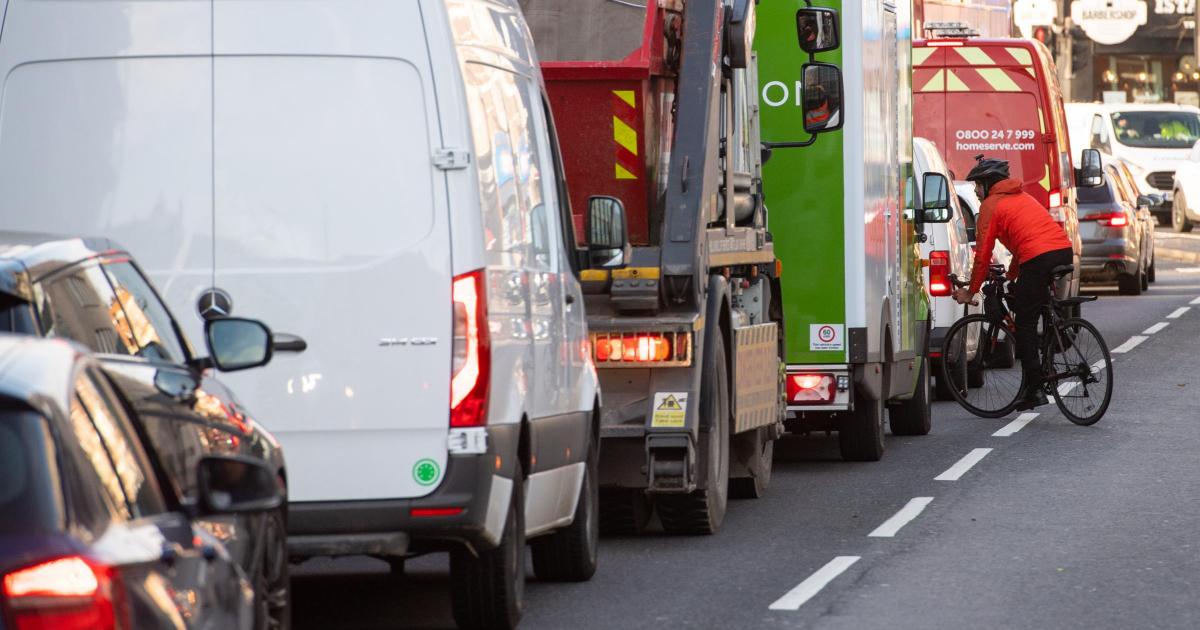Charges would be levied on drivers entering the city’s boundaries, while Glasgow residents would be exempt from the fee.
And users of the Clyde Tunnel could be hit with an additional road tax.
However, plans to implement a workplace parking charge, which would have raised £8m a year, have been shelved.
The Glasgow LEZ was implemented in June 2023, and has been one of several controversial traffic restrictions in recent years.In a report to councillors, Executive Director of Neighbourhoods, Regeneration and Sustainability George Gillespie wrote: “While the Council does not intend to progress a Workplace Parking Licensing scheme at this time, officers will now direct resources to the exploration of alternative potential initiatives utilising local road user charging powers.
“While a WPL scheme has the potential to encourage modal shift and generate relatively modest revenues to support sustainable transport interventions, it is considered that alternative options such as initiatives utilising local road user charging powers may prove more impactful in achieving these aims.”
Councillors will be asked to note the findings of the report at a meeting next week.
SNP councillor Ricky Bell, who serves as city treasurer, previously expressed support for a congestion charge.
He said: “We need to have solutions that work for Glasgow, and things like a tourist tax, congestion charging, tolling on the tunnel are the big ones that would make quite a difference to the amount of money we get.”
In July, city councillors expressed interest in rolling out the tariff.
Greens councillor Blair Anderson told a full council meeting: “The only way we can meet our climate targets is moving people from cars to public transport.
“A road user charging scheme would give us the money to make Glasgow’s buses publicly owned, reliable, fast and free.”
Meanwhile, a 5% tourist tax, which was approved by councillors in June, will be implemented from January 2027.
Visitors to the city will be charged an extra £4.83 per night in a bid to raise £16m in fresh capital each year.
Drivers on the M8 would be charged upon crossing the city’s boundaries. (Image: Getty Images) The Federation of Small Businesses Scotland has urged the council to proceed with ‘caution’.
Hisashi Kuboyama, the group’s West of Scotland Development Manager, said: “The city’s post-Covid recovery has been painfully slow, and businesses’ confidence isn’t back up yet. The council needs to ensure the impact on local businesses is fully considered as it develops policy proposals if they want to bring the city centre back to where it was.
“We welcome the city council’s decision to drop the idea of a workplace parking charge. That would have placed an extra burden on small businesses who need vehicles to carry out their work
“Similarly, we would urge extreme caution when it comes to considering a congestion charge for driving into the city or a toll on the Clyde Tunnel.”
Reform Councillor Thomas Kerr also hit out at the proposals yesterday, posting to X: “The SNP’s plan in Glasgow? Tax, tax, tax.
“This congestion charge will strangle business, turn off visitors and kill investment in our city. These chancers need to go before their damage is irreversible.”
A potential congestion charge has been mooted for years.
In 2023, Katy Loudon of the SNP was left red-faced after her colleagues in Glasgow City Chambers raised the issue amidst a heated by-election in the Rutherglen and Hamilton West parliamentary constituency.
At the time, a campaign source told The Herald: “We’re in a real scrap here and our prospects are not being helped by [Cllr Bell] telling our voters that under the SNP they’ll have to pay an extra £5 a day or whatever to get into their work. It’s madness. It does our chances here no good.”
Loudon was subsequently routed in the contest against Labour’s Michael Shanks, by a vote of 58.6% to 27.6%.
Read more:
Russell Findlay calls for ‘pause’ on new energy projects in Highlands
Highland Broadband secures £50m in bid to connect 150 towns and villages
‘A dire predicament’: Union Street closures as 23% of units lie empty
A congestion charge was implemented in London in 2003. Motorists pay £15 each day to travel within Central London. New York City followed suit in January this year, charging drivers $15 during peak driving times.
Congestion pricing has been praised for reducing the amount of car traffic and carbon emissions in city centres, as well as cutting down on noise pollution.
However, critics have said the tariff will cut into the profits of local businesses.
